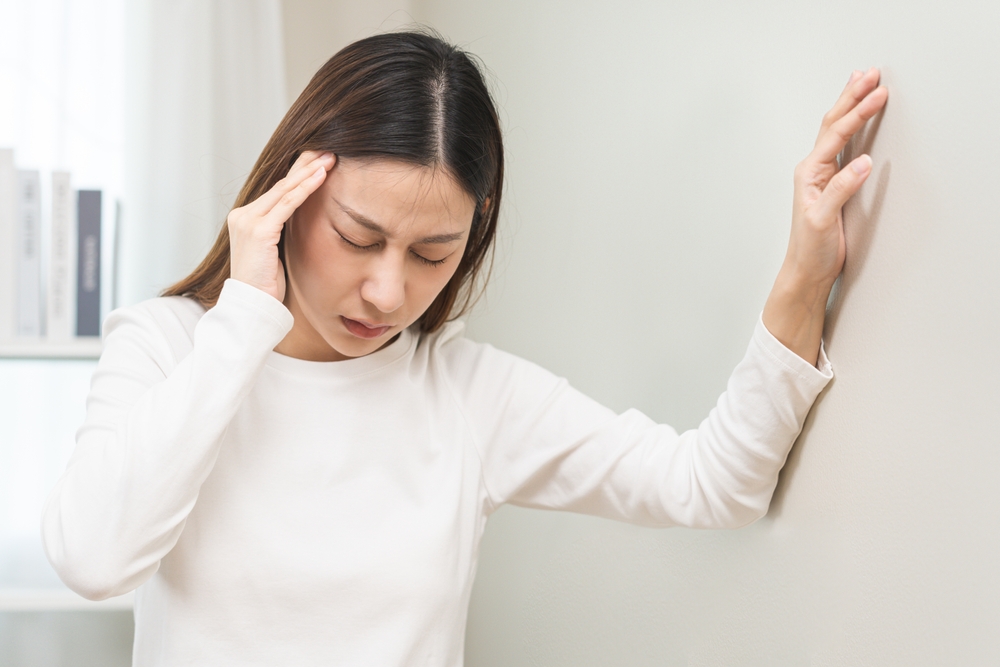Last Updated:
July 21st, 2025
Nausea Caused by Addiction
Many addiction symptoms are mental struggles, but nausea is a deeply uncomfortable and debilitating physical experience. Nausea is often your body telling you that it’s had too much, is struggling to process toxins and that its vital systems are struggling to function properly. Whether you feel sick in the morning after using, during withdrawal or at random moments that don’t seem to make sense, nausea can be a critical clue that drug or alcohol addiction is beginning to harm you. Spotting this connection early can lead to faster, more effective rehab treatment, bringing welcome relief from nausea and the chance of a healthier, substance-free future.

What is nausea?
Nausea is a sick, uneasy sensation in your stomach that makes you feel like you might vomit. It can also make you feel dizzy, flushed or clammy or cause your stomach to churn or tighten unpredictably and painfully. Sometimes, nausea leads to actual vomiting, but it can also just linger on, making you miserable and unable to eat, sleep or go about your day.
There are plenty of everyday causes of nausea, such as food poisoning, viruses or travel sickness. But nausea is also closely linked to your nervous system and emotions, so stress, anxiety and pain can all trigger nausea without anything physically wrong with your stomach.
Substance-related nausea can come from lots of directions. Some drugs and alcohol trigger it immediately as your body tries to cope with the chemical effects. Others cause nausea as part of the crash or withdrawal stage.
If you’ve been feeling nauseous and think alcohol or drug addiction could be involved, it’s important not to ignore it. Nausea might seem like a small thing, but it can be your body’s way of telling you it’s not coping and needs help.
How can addiction cause nausea?
Addiction and nausea often go hand in hand. Whether it’s a direct result of what the drugs or drinking are doing to your system or a withdrawal symptom when you stop, nausea can hit hard and last a long time if it goes untreated.
Nausea after drinking alcohol is especially common, as your stomach and liver can only handle so much before they push back. Alcohol irritates your stomach lining and increases acid production, which can lead to nausea, heartburn and vomiting. Heavy drinkers often feel nauseous first thing in the morning, especially if they haven’t eaten or are going through withdrawal.
Nausea is also a well-known side effect of opioids like heroin or prescription painkillers. These substances slow down your digestion, leading to bloating, sickness and a full, uncomfortable feeling even after small meals. During opioid withdrawal, nausea often intensifies and requires professional detox support.
Drug nausea is also frequent with stimulants like cocaine, ecstasy and meth which can cause stomach spasms, loss of appetite and queasiness. Cannabis, while sometimes used to treat nausea in small doses, heavy cannabis use can cause a condition called cannabinoid hyperemesis syndrome, leading to severe, cyclical nausea and vomiting.
What are some common symptoms of nausea to look out for?
Drugs, nausea, and nausea after drinking alcohol are often part of a much wider picture, with symptoms that affect both your body and brain. These may include:
When should I see a doctor about nausea?
It is very important that you seek professional medical help for ongoing or severe nausea. As well as substance abuse and addiction, many other things could be causing nausea, including pregnancy, seasickness, food-related issues and stomach flu. Determining what the cause of your nausea is can go a long way in ensuring you get the treatment you need and preventing any dangerous or even life-threatening issues.Your doctor will ask you a variety of questions, such as when you last had a meal and what you ate, how long you have felt nauseous, what medications you have taken previously and your alcohol and drug use. This enables your doctor to know the history of your nausea symptoms so they can diagnose it better.
There may be times when you will need to be monitored more closely if your nausea is severe. This can enable your doctor to protect you from harm while they are determining the right treatment course.

Can regular nausea become dangerous if left unaddressed?
Ignoring regular nausea can become very dangerous, as, depending on the actual causes of nausea, it can lead to more serious complications. These can include:
- Chest pains
- Confusion
- Nervous breakdowns
- Extreme dehydration
- Accidents due to being dizzy or faint
- Difficulties breathing
- Unresolved viral or bacterial infections
It can be tempting to try and wait it out and see if nausea symptoms settle down, but talking to a health expert will ensure you get the necessary treatment you need for a safe and quick recovery.
What should I do if I or a loved one is experiencing regular nausea from an addiction?
Nausea after drinking alcohol, taking drugs, or when you try to quit can be an uncomfortable and potentially even dangerous symptom. At Addiction Helper, we understand how hard it is to feel unwell all the time and not know where to turn. We can connect you to the right treatment and help you feel like yourself again. Contact us today for free, no-pressure advice.
Our compassionate team are ready and available to take your call, and guide you towards lasting the lasting addiction recovery you deserve.

